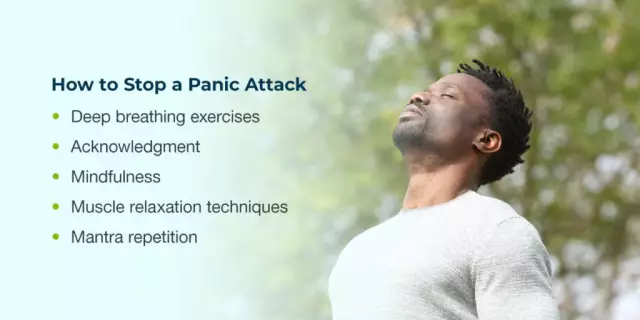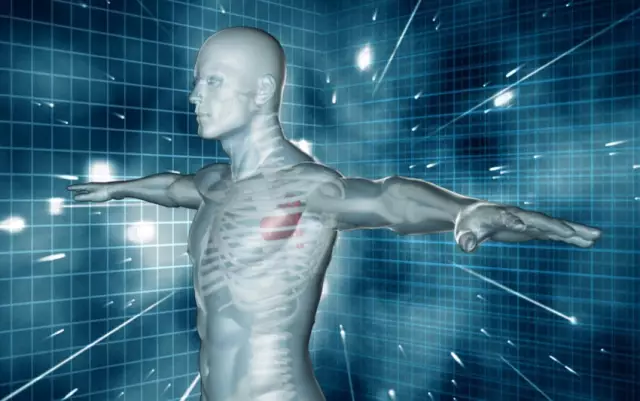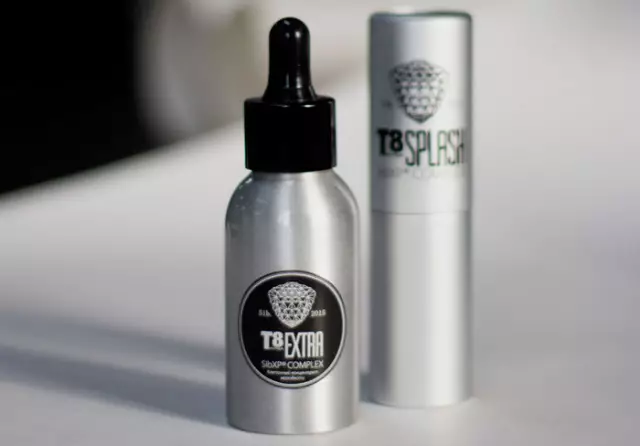- Author Rachel Wainwright wainwright@abchealthonline.com.
- Public 2023-12-15 07:39.
- Last modified 2025-11-02 20:14.
7 hormones that control our emotions
Substances that are produced by the endocrine glands play the role of chemical coordinators in the body, ensuring the optimal functioning of the organs and adjusting the subtle mechanism of their interaction. Not only the physical condition of a person, but also his feelings and emotions depends on the minimum fluctuations in the level of hormones in the blood.

Source: depositphotos.com
Serotonin and an optimistic outlook on life
Serotonin performs an essential function: it provides the transmission of impulses between nerve cells. Insufficient production of this hormone leads to the development of depression, decreased mental and physical activity, memory, difficulties in assimilating new information. Deficiency of serotonin badly affects the state of the digestive, cardiovascular and immune systems, increases pain sensitivity, and causes sleep disturbances. Excessive concentration of the hormone in the blood is also harmful: it has a depressing effect on the work of the organs of the reproductive system.
To produce serotonin, the body needs one of the essential amino acids, tryptophan. This substance is rich in vegetables of the legume family, cottage cheese, hard cheeses, buckwheat and oyster mushrooms. In addition, magnesium, found in seafood, seaweed, nuts, dried fruits and bran, is involved in the production of serotonin. In the event of a drop in hormone levels, the situation can be corrected by eating foods rich in B vitamins (bananas, dates, melon, offal).
It is important that the body becomes more serotonin under the influence of sunlight. It is not for nothing that in the autumn-winter period, with a lack of insolation, many complain of a bad mood, lethargy and a drop in working capacity. The normalization of serotonin levels can also be achieved with the help of reasonably dosed physical activity. Hiking, light sports and outdoor activities are great for this.
It has been established that there is not only a direct dependence of mood on the level of serotonin, but also an inverse relationship: people with an active life position and an optimistic view of the world almost always have a high concentration of this hormone in the body. This means that an increase in the production of serotonin can be achieved by methods that contribute to the creation of positive thinking (psychological training, relaxation practices, etc.).
Dopamine is a pleasure hormone
Like serotonin, dopamine is a neurotransmitter. It creates a sense of pleasure. The effect is especially noticeable during sexual intercourse, eating your favorite food, etc. A distinctive feature of dopamine is an increase in its production not only at the moment of a pleasant event, but also in the process of its approach (the so-called effect of premonition). This also determines the negative impact of the hormone: a person can receive pleasant sensations not so much from actions (situations) as from the anticipation of their result. This is one of the ways of development of alcohol dependence: the "habitual" drunkard drinks alcohol, because he remembers the feeling of satisfaction that libations caused him earlier. One of the modern theories of the onset of schizophrenia is based on the concept of "dopamine deception": it is believed that the patient concentrates on his dreams,providing him with mental comfort, and voluntarily refuses active existence in the real world.
Adrenaline and norepinephrine: stress relief
Nature has provided for two types of reaction to a dangerous situation: attack and flight. The hormone norepinephrine is responsible for the success of the first option. It helps to mobilize all the forces of the body: the brain begins to work more actively, blood flow accelerates, blood pressure and muscle tone increase. On an emotional level, this is manifested by a sense of courage, and sometimes by rage. Adrenaline is designed to help you get away from danger in time and quickly enough. This does not always mean flight. The body uses the release of adrenaline into the blood in order to resolve a situation associated with fear without loss (for example, during a conflict, an exam, a traffic accident).
Both hormones are produced by the adrenal cortex. An excessive concentration of these substances in the blood is dangerous: a high level of norepinephrine leads to depletion of the body, and excess adrenaline can cause the appearance of uncontrollable fears and phobias.
However, the production of adrenaline and norepinephrine is not always driven by negative emotions. These substances are also released in situations associated with strong pleasurable experiences - during successful transactions, major purchases, public speaking, etc.
Endorphins and the state of euphoria
Endorphins usually act in parallel with serotonin and dopamine. They have a strong analgesic and sedative effect. However, the main property of endorphins is that they cause a feeling of pure, sublime joy. A state of euphoria can occur after severe stress, but is often associated with the psychological impact of music, a movie, a play, or a book. Powerful positive emotions that are triggered by the release of endorphins can be triggered by natural events or the proximity of loved ones.
A high concentration of endorphins in the body is a short-term phenomenon, which is why many define the feeling of happiness as something fleeting.
Phenylethylamine and falling in love
Love at first sight really exists. A sudden feeling of sympathy, sexual attraction and emotional uplift in a person is caused by the hormone phenylethylamine, which belongs to the group of neurotransmitters. The release of this substance into the blood, as a rule, occurs along with the effect on the body of serotonin and dopamine. This is what explains resort romances: short-term casual falls in love often arise against the background of a festive mood typical for people who spend their holidays in an unusually comfortable environment.

Source: depositphotos.com
Oxytocin and trust
In a woman's body, the hormone oxytocin serves as a regulator of the contractile activity of the uterus and an amplifier of the lactation process upon contact with an infant. But the production of this substance is associated not only with pregnancy, childbirth and breastfeeding.
Oxytocin is secreted in all people. Emotionally, it provides the formation of trust in another person, especially when there is tactile contact. For example, an increase in oxytocin levels is observed when hugging, shaking hands, touching hands in the process of a confidential conversation. The hormone is especially effective if the contacts have known each other for a long time or are relatives.
A high level of oxytocin allows you to empathize with other people's troubles and even physical pain, relieves anxiety and promotes the development of communication skills. This effect is the basis of the oxytocin treatment for people with autism.
Testosterone and the joy of victory
Testosterone is called the male hormone, although it is also produced in women. In the body, he is responsible for the formation of libido, for erectile function, the development of secondary male sexual characteristics. In the emotional sphere, testosterone creates the effect of successfully resolving competitive situations: the higher its concentration in the body, the more a person is able to achieve his goal and defeat rivals.
There is also an inverse relationship: winning the competitive process itself increases testosterone levels. There is a certain negative effect associated with this. Addiction to excess hormone levels can lead to severe depression when rivalry stops. The risk is especially high for athletes who retire from active pursuits or for people who have made successful careers after retirement.
The normal functioning of the endocrine system not only ensures good health. We also need it in order to realize ourselves professionally, not to experience problems with communication, enjoy life, love and be loved - after all, this is no less important than the absence of health problems.
YouTube video related to the article:

Maria Kulkes Medical journalist About the author
Education: First Moscow State Medical University named after I. M. Sechenov, specialty "General Medicine".
Found a mistake in the text? Select it and press Ctrl + Enter.






